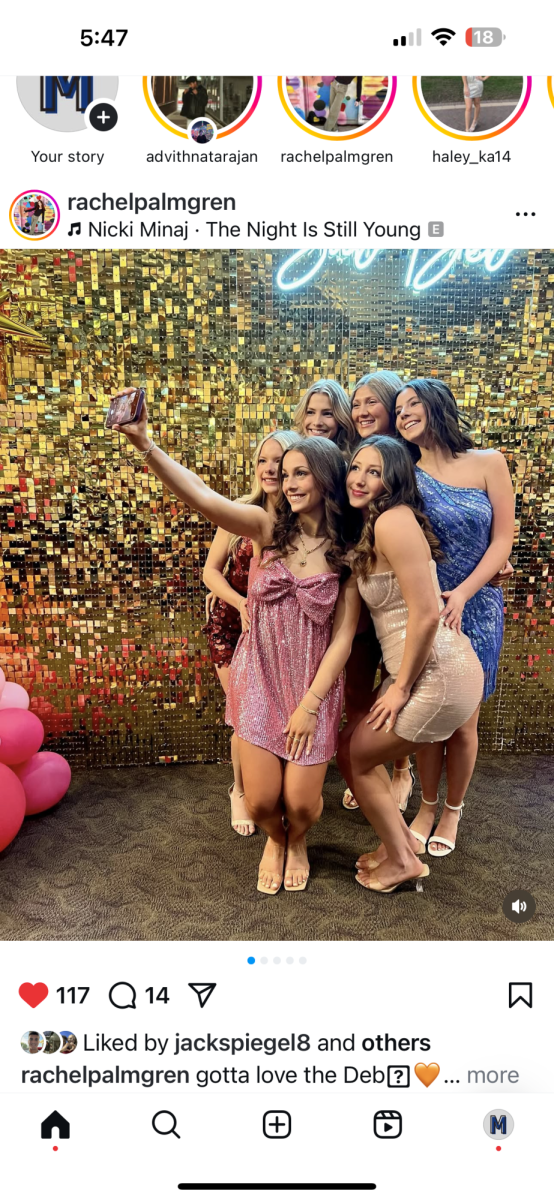Students need to be more aware of companies they support
TikTok censorship provides example of lack of youth awareness
December 10, 2019
TikTok, a popular social media app used by much of Manhattan High’s student body, is again wrapped up in controversy after suspending teenage Feroza Aziz’s account for expressing anti-Chinese political views, a claim that TikTok — part of Chinese parent company Bytedance — vehemently denies.
It is the opinion of The Mentor Editorial board that while students aren’t necessarily directly endorsing Chinese exploitation by using the Chinese-owned app, they should be more aware of the values of businesses they choose to support.
In her tutorial about how to get longer eyelashes, Aziz launches into a passionate commentary on the plight of Uighur Muslims in China. The Uighurs, a Muslim ethnic minority in Han majority China, are being rounded up and placed in “reeducation camps” as well as being closely monitored in their daily lives by the Chinese authoritarian dictatorship. While China denies these claims, evidence from humanitarian groups and warnings from the United Nations suggest the accusations are true.
Days after the video was posted Aziz’s account was suspended, she then tweeted that her account had been suspended subsequently raising an uproar in the United States. TikTok, however, claims her account was suspended because it was linked to another one of her accounts that was banned for violations of their terrorist imagery policy. They did eventually apologize and restore Aziz’s account.
The recent backlash comes in the wake of allegations by The Guardian and The Washington Post of censorship at the hands of TikTok. The company claims they don’t censor content on behalf of the Chinese government and that their data is only stored in the U.S. and Singapore without access by the Chinese government.
Many teenagers don’t look into the apps they download, such asTikTok. They wouldn’t have been aware it was owned by a Chinese parent company or know much of the aforementioned background information about the app they downloaded. Whether or not students were educated about Chinese repression, they didn’t sign up with the intention to support those ideologies.
However, students should have had a general idea of the controversy surrounding the app by the time it made headlines for the second or third time. Once educated on the possible abuses of power the app is involved in, students can make the decision whether or not to continue to use TikTok for themselves, but ignorance is not acceptable. Students could continue to use the app with the knowledge it likely censors content, but shouldn’t continue to use it with no knowledge of the situation.
Though TikTok is based in the U.S., as a private company it cannot be held to the same standards as the U.S. government. In other words — though this is currently a subject of debate — the government can’t control political speech, but private companies can. TikTok isn’t doing anything illegal by taking Aziz’s video down, but it’s up to individuals to decide whether or not those actions were moral.
Many products have hidden backgrounds that people aren’t necessarily intending to support by buying them. Things like non-cruelty-free soap, Chick-Fil-a’s anti-LGBTQ policies and other social media platforms policies on data privacy are common examples. While people who use these products don’t always endorse these ideas or policies,they are inadvertently supporting them by giving money to those businesses.
The question individuals need to ask is: Will boycotting TikTok or other apps for censorship make a difference? Educating oneself and talking about these issues more often would help people make the right decision.



